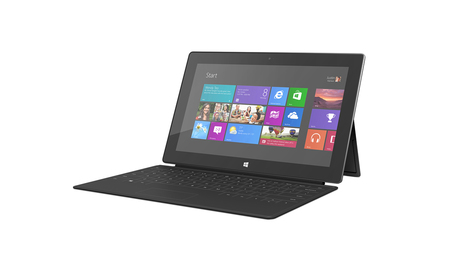Windows 8 not for enterprise - unless it’s in tablet form

Large enterprises will avoid a general deployment of Windows 8 on desktops and laptops, but many will look to the OS for tablet computing, according to a new report from Gartner titled ‘Microsoft Must Shake Off Its Past to Secure Windows 8’s Future With Tablets’.
“About 90% of large enterprises are likely to bypass Windows 8 for broader deployment on notebooks and desktops,” wrote report authors Carolina Milanesi and Annette Jump.
Fortunately for Microsoft, Windows 8 provides some significant advantages over competing tablet operating systems, the analysts said. Therefore, x86-based tablets will provide the only way that the software vendor might get its new operating system into the enterprise in any substantial fashion.
In particular, “Windows 8-based tablets offer some key advantages around manageability and support for legacy applications,” the authors said.
However, while these benefits will attract the attention of IT departments, Microsoft will also have to cater to the desires of employees. End users have grown used to the well-populated app stores of their own consumer devices and will look for something similar in a tablet provided by their organisation.
Without a strong Windows 8 app ecosystem, “there is a risk that companies will deploy Windows 8 tablets only to find that their app-hungry employees will continue to bring their Apple and Android devices to work”, the analysts said.
The impact of Surface
Gartner says that the recently launched Windows 8 tablet, Surface, is Microsoft’s attempt to show off how its new OS can work on tablet machines and raise the profile of Windows 8 as a potential tablet OS.
The device’s relatively high price and limited availability (customers can only purchase it online or through Microsoft stores) will limit its market share. But the effect of price on market share, at least, is intentional. Microsoft wants to stimulate the Windows 8 tablet market with Surface - to demonstrate to hardware vendors that there is money to be made - not dominate it.
“[The] entry price of $499 will allow Microsoft’s partners to reach lower price points and maintain margins they could not have achieved if Surface started at $399 - the price at which consumers can now buy the iPad mini and Android Nexus 10,” the analysts said.
IoT demands alternatives as 3G sunset looms
The impending 3G shutdown is a daunting prospect for organisations across ANZ that rely on...
Broadband measurement shows online gaming stacks up
The ACCC's latest Measuring Broadband Australia report has found that consumer connections to...
BlackBerry stopping one cyber attack per minute
A new report from BlackBerry's Threat Research and Intelligence team highlights the...




